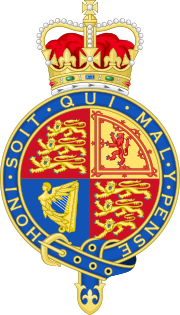Proprietary Articles Trade Association v. Attorney General of Canada
| Proprietary Articles Trade Association v Canada (AG) | |
|---|---|
 |
|
| Court | Judicial Committee of the Privy Council |
| Full case name | The Proprietary Articles Trade Association and others v The Attorney-General of Canada and others |
| Decided | January 29, 1931 |
| Citation(s) | [1931] UKPC 11, [1931] AC 310 |
| Case history | |
| Prior action(s) | Reference re Validity of the Combines Investigation Act and of s. 498 of the Criminal Code 1929 CanLII 90, [1929] SCR 409 (30 April 1929) |
| Appealed from | Supreme Court of Canada |
| Court membership | |
| Judges sitting | Lord Blanesburgh, Lord Merrivale, Lord Atkin, Lord Russell of Killowen, Lord Macmillan |
| Case opinions | |
| Decision by | Lord Atkin |
Proprietary Articles Trade Association v Canada (AG), is a famous Canadian constitutional decision of the Judicial Committee of the Privy Council on the Constitution's criminal law power under section 91(27).
Following the Board of Commerce case (in which the Privy Council determined that two Acts were ultra vires federal jurisdiction), the Parliament of Canada passed the Combines Investigation Act, 1923, which provided for:
The Criminal Code was also amended by inserting s. 498, which created a corresponding offence of combining to limit facilities, restrain commerce, or lessen manufacture or competition. These measures essentially repeated the previous legislation, without employing the regulatory framework that had previously been found to be unconstitutional.
The Proprietary Articles Trade Association was formed in Canada in 1925, with objects similar to organizations of the same name formed in several other Commonwealth countries. It was investigated under the Act, and found to be a combine within its scope.
The following reference questions were posed to the Supreme Court of Canada:
The Supreme Court unanimously held that both measures were intra vires federal jurisdiction, by virtue of the federal criminal law power. As to Lord Haldane's restrictive interpretation that had been previously enunciated in the Board of Commerce case, Newcombe J said:
I am convinced that he never intended to suggest that Parliament might not competently find a public wrong lurking or tolerated under the head of civil rights in a province which it is necessary or expedient, according to its will and discretion, or, using Sir Matthew Hale’s expression, “by the prudence of law-givers,” to suppress, in the exercise of its authority over the criminal law.
...
Wikipedia
